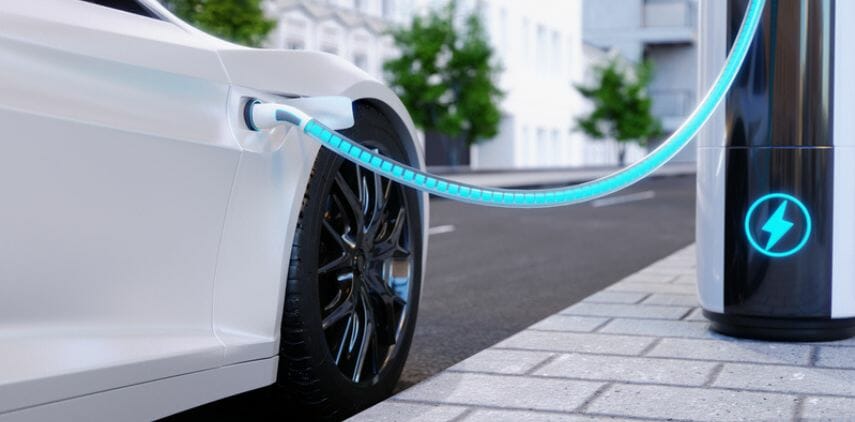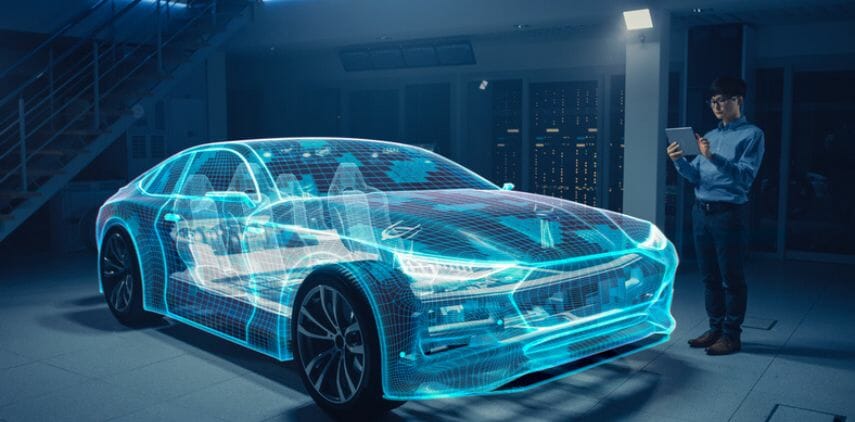Overview
With sales of hybrid vehicles hitting record highs in 2022, more drivers than ever are considering purchasing their first hybrid. Many drivers are attracted to hybrids to save money on fuel costs, minimize their environmental impact, and for their advanced technology.
However, because hybrids operate using a different drivetrain than vehicles powered solely by an internal combustion engine, potential hybrid owners often wonder if hybrid SUVs require special maintenance.
Hybrid vehicles require a similar maintenance schedule to gas-only vehicles, but there are a few differences. On average, hybrid vehicles require less maintenance than gas-powered vehicles, though the maintenance they require is often more complex and expensive than a regular car service.
Table of Contents
How Often Do Hybrids Need Maintenance?
One of the benefits of driving a hybrid vehicle is a reduced need for regular maintenance. The electric motor of a hybrid system takes some strain off the internal combustion engine, so it is subjected to less wear and tear than gasoline-powered engines.
Oil Change
Since the internal combustion engine of hybrid vehicles experiences less stress, hybrid drivers won’t need to change their vehicle’s oil as often as they would with traditional gasoline engines. While the frequency of your oil changes is partially dictated by how often you use the electric motor, many hybrid models can travel up to 10,000 miles without an oil change.
Brakes
Another area that often requires less maintenance in hybrid vehicles is the brakes. Most hybrids use regenerative braking (a system that captures the kinetic energy released during braking to help charge the hybrid while also helping to decelerate the vehicle).
Regenerative brakes are subjected to less friction and stress than traditional braking systems. This allows drivers to use their vehicles for longer without needing a potentially-expensive brake pad replacement.
Although the crucial components of hybrid vehicles are subject to far less wear and tear than those found in gas-fueled cars, it is still important to regularly maintain your hybrid. If you fail to maintain your vehicle, more serious issues can occur that can cost more than a simple check-up.
How is Hybrid Maintenance Different?
Hybrids require far fewer fluids, such as engine oil or transmission fluid, than conventional vehicles. This means hybrids do not need fluid changes as often as other vehicles. Over time, this can save drivers a significant amount of money. The hybrid’s battery, electric motor, and associated electronic systems typically require no maintenance.
Battery Maintenance
Hybrid batteries are only rated for a certain number of charge cycles, so they will eventually need to be replaced. Hybrid batteries cost several thousand dollars more than traditional batteries, so it is important to consider this expense when purchasing a hybrid.
Some drivers purchase a new vehicle when the battery has expired since the costs of a down payment on a car are comparable to the cost of a hybrid battery. This may change in the near future, as battery prices have steadily fallen since their introduction to the market, and batteries have been reported to last over 200,000 miles.
Most vehicle manufacturers also offer a generous battery warranty and will replace them if they fail too quickly. A common hybrid warranty will cover the full cost of a replacement battery for 10 years after the purchase date or before the odometer shows 150,000 miles. As a result, battery replacement costs will likely not be a major consideration for several years after purchase.
Cooling System Maintenance
Another difference between the two vehicle types is that hybrid vehicles need more cooling system maintenance than gas-powered vehicles. Many hybrid vehicles use a liquid cooling system to keep the battery within safe operating temperatures.
This liquid cooling system is considerably more complex than the cooling systems found in traditional vehicles. A malfunction in the cooling system can cause the lithium-based battery to overheat. This can lead to a potentially-catastrophic fire or explosion, which can occur when hybrid batteries overheat excessively.
Beyond the chances of combustion, the increased complexity of hybrid cooling systems requires drivers to monitor and maintain their cooling system at a higher frequency than drivers of gas-powered vehicles. And when it comes time to replace the system’s coolant, hybrid drivers will face a bill that can be several times higher than the cost of replacing traditional coolant.
Electrical Components
Another difference between hybrids and gas-powered vehicles to keep in mind is that the more advanced technology associated with hybrid vehicles can be difficult and expensive to repair.
If any vital sensors, systems, or other computer-based components begin to fail, you’ll need a mechanic that specializes in hybrids to perform a complex fix on your vehicle. These technologically-advanced parts – combined with the increased cost of labor associated with hybrid-specialist mechanics – can increase repair bills.
Cost of Hybrid Car Maintenance
Hybrid vehicles require less frequent maintenance, and their design reduces the strain on the engine. Hybrid repairs are often more expensive than similar repairs on traditional vehicles.
Hybrid maintenance must also be performed by a qualified technician who fully understands how they work. Most of the electrical system in hybrid cars is 12-volt, which would not be life-threatening; however, the drive motor and its components use electric currents of over 100 volts. This power can easily kill maintenance workers or start fires if improperly handled.
Common Hybrid Mechanical Issues
While hybrid vehicles require less maintenance than gas-powered vehicles, they are still subject to occasional mechanical issues. Some of the most common issues reported by hybrid drivers include the following:
Battery Issues
The battery is a crucial component of any vehicle, but it is even more vital in a hybrid. With increased stress placed on the battery in hybrids, they are also more prone to issues.
Often, these battery issues stem from the control module, also called an engine control module (ECM) or engine control unit (ECU). This device monitors the sensors located in the engine bay to adjust the engine’s output for optimal performance. It regulates the vehicle’s idle speed, variable valve timing, air-fuel ratio, and ignition timing.
If the control module is not performing correctly, it can cause several problems with the vehicle. Beyond the dashboard check engine light being illuminated, the engine may misfire or fail to start altogether. Even if it does start, a faulty control unit can significantly reduce the engine’s performance and efficiency, reducing acceleration, top speed, and fuel economy.
Oxygen Sensor Malfunction
Oxygen sensors are an often-overlooked vehicle component that can sometimes malfunction in hybrid vehicles. The oxygen sensor is responsible for detecting the oxygen level in your vehicle’s exhaust. This sensor sends information back to your vehicle’s electronic management system, which can adjust the engine’s performance based on the sensor’s readings.
If an oxygen sensor malfunctions, your engine will not operate at its maximum capacity, and you’ll lose out on fuel economy and pay higher gas prices.
Problems with the Evaporative Emissions System
The evaporative emissions (EVAP) system captures vapor from the vehicle’s fuel tank to prevent it from leaking into the atmosphere. Leaks in the EVAP hose, tank leaks, loose fuel caps, or vent valve issues can lead to problems with the evaporative emissions system.
Fortunately, issues with this system are unlikely to cause noticeable problems; however, it is still vital to quickly remedy the situation to prevent further damage.
Find the Perfect SUV with SUViews
When it is time to select the best SUV model, many drivers can be overwhelmed by the number of options on the market.
SUViews industry experts provide insider reviews of the most popular SUV models, and our articles provide the in-depth information you need to make the best choice possible.
Before heading to the dealership, check out our reviews and recommendations – ranging from the best hybrid compact SUV to the top plug-in hybrid SUVs – so you can be confident that you are choosing the optimal SUV for your needs.






